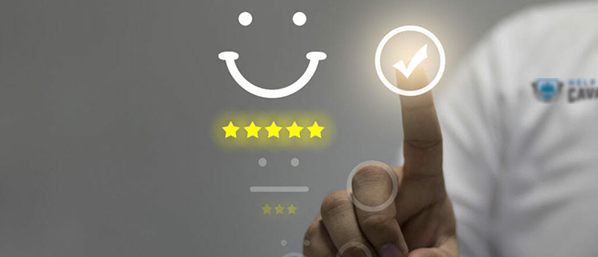Technology has evolved in leaps and bounds through the decades, and customers’ expectations have evolved with it.
Empowered by their always-connected electronic devices, modern customers are used to personalized services available through multiple convenient channels, and small businesses must learn to deliver similarly polished customer experiences if they want to stay relevant to their target audience.
Customer Experience Is the Way to Differentiate Your Business
According to Oracle, customer experience (CX) refers to how a business engages with its customers at every point of their buying journey—from marketing to sales to customer service and everywhere in between.
You can think of it as a computer’s operating system. It doesn’t matter if the computer is equipped with the latest processor or has a huge amount of storage space—if the operating system is outdated, then using the computer won’t be pleasant to use, and its capabilities will go to waste.
The problem is that many businesses still run outdated software—sometimes literally. That’s bad news because, according to statistics gathered by Forbes, customers are willing to pay up to a 17% more on products and services when they have a positive experience. On top of that, 32% are willing to walk away from a business after just one bad experience. And its seriously bad press because customers tell an average of 9 people about a positive experience with a brand, but they tell 16 people about a negative experience. Almost double!
Businesses that understand the critical importance of customer experience can use it as a way to differentiate themselves from the competition and avoid competing solely on price, which is essentially unsustainable.
So in keeping with the computer operating system analogy, improving your customer experience is like installing a large software update. One that makes your business more attractive to the new kind of always-connected customers.
Improving Customer Experience Through Technology
Technology is largely responsible for customers’ sky-high expectations, and it’s also the key to meeting them. Even small businesses with limited resources can achieve excellent results by focusing on areas that are guaranteed to have the biggest positive impact on their customer experience.
1. Make It Easy for Your Customers to Reach You
Potential and existing customers alike should be able to reach the right person on the first try via several different communication channels (so they can choose the one they like the most instead of you telling them what you prefer).
If you haven’t done so already, consider upgrading your business phone system to Voice over IP (VoIP) for increased accessibility, clearer voice quality, softphone support, simplified conferencing, and other attractive benefits.
Adding additional communication channels is easy thanks to platforms such as Microsoft Teams, Zoom, WhatsApp, and Skype. You can also install a live chat app on your website to give your mail server some room to breathe. And don’t forget about social media. More than ½ of your customers say they prefer to use social media for customer service.
2. Don’t Let IT Problems Slow You Down
Despite all the advances in technology over the years, businesses of all sizes still regularly deal with all kinds of IT problems that slow them down and prevent them from serving their customers as well as they would like to.
Since your employees already have a lot on their plate (hopefully taking care of your customers), you shouldn’t force them to be their own IT support. Likewise, you don’t need to employ a full-time, dedicated IT person, whose salary requirements puts more stress on an already tight small business budget. Instead, you can hire a managed IT services provider to be on call 24 hours a day, 7 days a week, 365 days a year, ready to make your IT problems go away and prevent them from compromising your customer experience.
3. Take Advantage of Cloud Solutions
The cloud has a wonderful ability to make any business more agile, and agility is the key ingredient to meet customers’ demands and expectations quickly. Regardless of whether your employees are all located in the same building or spread across home offices in multiple towns, cloud solutions can help them communicate and collaborate better.
For example, Microsoft 365 is a cloud-based suite of productivity tools that includes secure cloud storage, familiar office applications, email and calendaring, real-time text, voice, and video communication, and enterprise-grade security with ransomware protection. And it doesn’t have an enterprise-grade price tag. Like most other cloud solutions, Microsoft 365 is offered on a subscription basis, making it IT budget friendly. Because cloud solutions don’t depend on a physical infrastructure, which is expensive to build and maintain, they are highly cost-effective and help businesses save money in the long run, as well as avoid large upfront expenses.
Modernize Your Customer Experience with Help Desk Cavalry
We understand the critical importance of customer experience in today’s fast-moving world of business. That’s why we do what we do. We take care of your company’s technology so you can focus on your customers. And our solutions are designed to make sure that our clients have the latest tools, the most flexibility, and the highest level of security that any managed IT service provider can offer.
If the idea of modernizing your customer experience with a trusted technology partner sounds interesting to you, then let’s start the conversation. Schedule a free consultation so that we can get an idea of what you’re working with, where’d like to be, and plan the best path forward.

